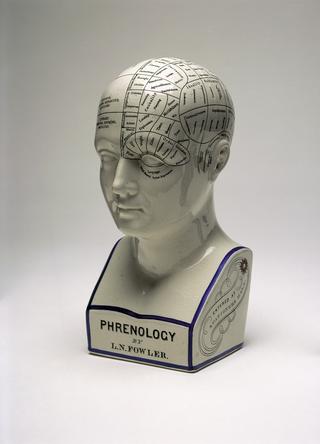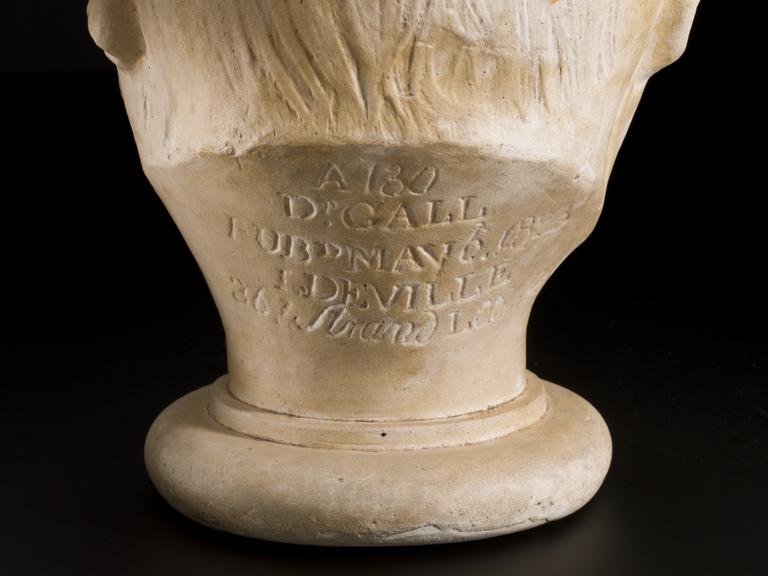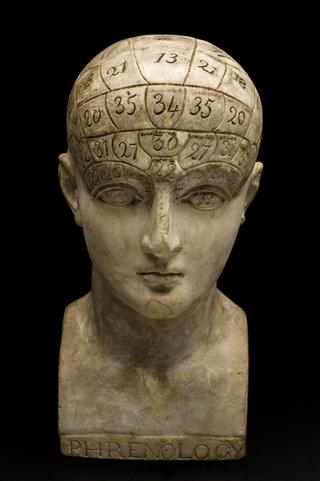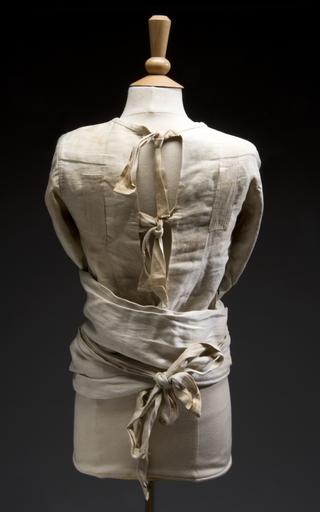
Phrenological head of Francis Gall
- maker:
- James DeVille














Plaster phrenological head of Gall, founder of phrenology, by James De Ville (1777-1846), Strand, London, 1823
Who is this handsome devil? A hero or a coward, a genius or a fool? Perhaps he was a great explorer or maybe an infamous criminal. What if you could read his true character simply by examining the shape of his head? This is actually German physician Franz Joseph Gall (1758-1828). From the late 1700s, he studied whether the shape of the brain might actually relate to brain function – including an individual’s specific behaviours and talents. Based on his observations, Gall claimed that the brain contained "inner senses" whose development determined the shape of the brain and ultimately, the shape of the skull.
He and his follower Johann Spurzheim developed a method of interpreting a person's character by "reading" their skull. In 1805 they began a highly successful lecture tour of Europe to promote their new ideas. It became especially popular in England, where Gall's supporter Thomas Forster named the new discipline "phrenology" – meaning ‘science of the soul’. In the early 1800s, all kinds of people, with little or no medical training, liked to engage in phrenology using plaster phrenological heads as maps for reading skull shapes. This was non-invasive and seemed to be a "scientific" way of detecting people's character and aptitudes. This head of Gall would have been part of a large reference set of different heads used to help teach the technique. However, phrenology became increasingly criticised by medical experts as speculative and unreliable, and cartoonists would often portray Gall and his followers as credulous fools. Now, phrenology has been dismissed as a way of understanding peoples’ characters.
Details
- Category:
- Psychology, Psychiatry & Anthropometry
- Object Number:
- 1992-34/1
- Materials:
- plaster
- Measurements:
-
overall: 305 mm x 210 mm x 220 mm, 3.52kg
- type:
- phrenological head
- credit:
- Philip Mutton ARICS




